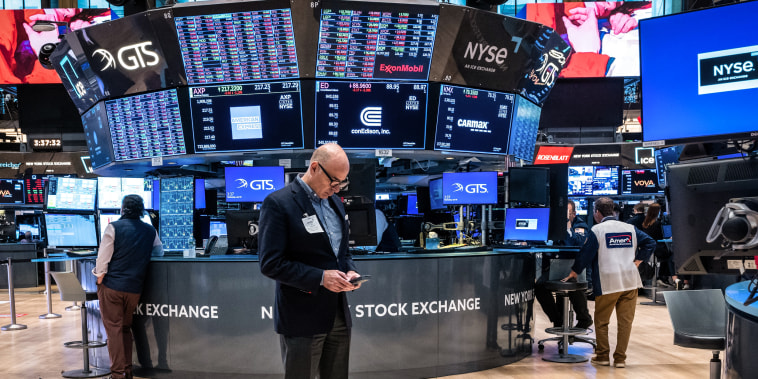
Inflation Fears Ignite Market Turbulence: Dow Plunges 475 Points, S&P 500 Hits Rock-Bottom in Worst Slump Since January
The US stock market experienced a day of intense activity, with the Dow Jones Industrial Average tumbling by about 475 points and the S&P 500 reporting its worst day of trading since January. These dramatic falls were largely due to accelerating inflation concerns, an indicator of the unpredictability enveloping financial markets in recent times.
The Dow Jones, a price-weighted average of 30 blue-chip stocks that are generally the leaders in their industry, witnessed a significant dip of 475 points. This index is a key benchmark for the US stock market and its sharp decline clearly illustrates the turmoil the financial markets are currently undergoing. Analysts have highlighted a multitude of factors that have led to this drop, but the catalyst seems to revolve around escalating inflation fears.
Inflation has long been a specter that could significantly impact the stock market. It erodes the value of future earnings, which can impact company valuations and, by extension, stock prices. The main concern now is that inflation is increasing at a faster pace than anticipated, caused by the economic recovery from the pandemic and ongoing fiscal stimulus.
Brunt of this worry has been felt by the S&P 500 index, which suffered its worst day since January. The S&P 500 is considered a far more representative sample of the overall market than the Dow Jones, as it encompasses around 500 of the largest companies in the US. Hence, a significant drop in the S&P 500 paints a more drastic picture of the overall market sentiments.
Several sectors within the S&P 500 were hit hard, with technology and consumer discretionary sectors, in particular, witnessing substantial losses. Inflation, by default, raises the cost of goods sold, eating into company profits. This is particularly hard on the high-profit-margin industries, such as technology, where investors may be willing to pay a premium for future earnings. The combination of increasing production costs and prospective interest rate hikes is a burden businesses may find hard to bear.
In response to the rising inflation rates, the Federal Reserve has hinted towards possible interest rate hikes. Though this may seem like a viable solution, it’s not all good news for stockholders. Higher interest rates can affect businesses and consumers alike, making borrowing more expensive, slowing spending and potentially slowing economic growth, which is not ideal for a market striving to recover from a pandemic.
An additional worry comes from the predictions that massive fiscal stimulus could push the economy into overheating, thus causing a rapid rise in inflation. If this occurs, high inflation could become a long-term problem rather than just a short-term bump in the road.
In conclusion, we see that the dramatic plummeting of the Dow Jones and the S&P 500, triggered mainly due to surging inflation fears, serves to dent investor confidence temporarily. The road to economic recovery post the pandemic era seems rocky at best, calling for increased vigilance from households, businesses and federal authorities alike. The hope is that as conditions change and new economic data emerges, some reassurance will be offered and markets will find their way back from the edge of this perceived precipice.
